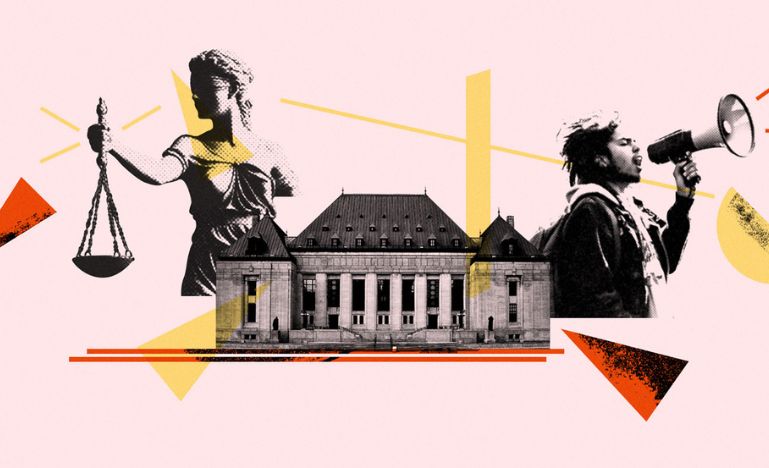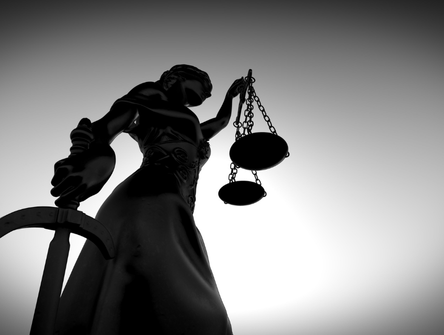The Supreme Court of Canada at 150
The anniversary is a chance to deepen public understanding of why the legal system, with all its flaws, underpins democracy — at a time when it’s under threat elsewhere

Supreme Court of Canada Chief Justice Richard Wagner does not mince words about the legal backsliding underway in many countries, including those “close to us.”
“The rule of law and judicial independence are under attack,” he says. “And therefore, democracy is under attack.”
It’s not something we’re immune to here.
“I think it’s a good opportunity for Canadians to reflect on our institutions and to what extent we must feel privileged to have strong institutions on which we can build.”
As the country’s top court commemorates its 150th anniversary this year, Wagner says building public trust while protecting rights and freedoms is a “permanent commitment” for him.
“It’s a work in progress,” he says. “Every year, we try to find ways to improve the rule of law, improve access to justice and improve judicial independence.”
Defending the rule of law
Legal watchers have been raising alarms since soon after U.S. President Donald Trump was sworn in on Jan. 20 for a second term. Twenty-two U.S. civil rights groups, including the Legal Defense Fund and the American Civil Liberties Union, released a joint statement on March 22 calling for “urgent action to defend the rule of law.”
They were responding to a White House memo sent late the night before to Attorney General Pam Bondi directing the Department of Justice to “pursue sanctions against lawyers and law firms that pursue what the Trump administration deems ‘unreasonable’ or ‘frivolous’ litigation against the federal government,” the statement says.
It followed Trump’s executive orders targeting Big Law firms and specific lawyers involved in legal challenges against his current and former administration, along with ongoing attacks on the judiciary.
In their joint news release, the civil rights groups said the White House memo “is a dangerous tactic seeking to prevent the legal system from operating as an independent check on government authority.”
Moreover, it’s “the latest in a rash of statements and actions intended to chill dissent, avoid accountability, and weaponize the government to attack opponents of this administration and its lawless actions.”
Being mindful of misinformation
While Wagner doesn’t stray into political specifics, he stresses the importance of openness and public outreach in an era of truth distortion and deep social division.
He says the dangers of fake news are especially real as “professional” media shrink.
“You see what misinformation can do (to) democracy around the world, in countries that are close to us. We have to be very mindful of that.”
Wagner's efforts to demystify the top court include recent visits to Victoria and Moncton for meet-and-greets with students, journalists, lawyers and judges. Justices will head to Yellowknife, Sherbrooke, Que. and Thunder Bay later this year for similar events.
He holds a news conference once a year and has urged more pro bono work, legal aid funding and structural changes to increase access to justice for all.
The court now offers plain-language “Cases in Brief” summaries of its judgments and annual reports of its work. In 2019, it signed an accord with then-Justice Minister David Lametti to formally set out the court’s independence from the Department of Justice.
Wagner says a similar agreement underscored the Canadian Judicial Council's independence, assuring that training “would be done by judges, for judges.”
“Judicial independence is for the citizens so that every citizen in this country (can) go to court and be sure that he or she will be heard by an independent, impartial judge. That’s what judicial independence means.”
Still, an Angus Reid Institute survey of 1,600 respondents released last fall suggests that while most Canadians (62 per cent) believe the top court is “impartial,” a full 22 per cent call it “biased.” Two-thirds (65 per cent) said the law rather than politics is “the greater consideration” in how justices of the Supreme Court rule.
The margin of error was plus or minus two percentage points, 19 times out of 20.
University of Ottawa law professor Constance Backhouse has written extensively about the top court, including her books, Two Firsts: Bertha Wilson and Claire L’Heureux-Dubé at the Supreme Court of Canada, and Claire L’Heureux-Dubé: A Life.
She says trust in the justice system depends on who you ask –- and that uneven playing field has always troubled her.
“We have never managed to create a society in which the people who need legal representation and protection are given the same rights as the people who are well-connected, wealthy and of dominant communities.”
Accusations of activism
The U.S., unlike Canada, has “deeply and overtly politicized their judiciary to the point where you can have a man who sits in the presidency refer to Obama judges and Biden judges,” Backhouse says.
“Our culture has never been one in which we say that judges appointed by a Conservative government will always rule in favour of a Conservative government, and vice-versa.”
Justices unavoidably arrive with personal experiences and perspectives, some of which evolve in office, she says. But she doesn’t believe high court judges view themselves as “the appointee of a certain politic.” Rather, she describes the tone of their rulings as a “much more apolitical perspective.”
“I think they strive to deliver the best assessment of cases, the best decisions they can possibly make, collectively and individually.”
Complaints of “activist judges” increased after the Charter of Rights and Freedoms was enacted in 1982 as the Supreme Court started assessing the constitutionality of laws. Cases have ranged from medically assisted death to abortion, Indigenous rights, same-sex marriage, mandatory minimum sentences and the 1998 reference on Québec secession.
Those rulings have been questioned at times.
Tensions ran especially high under the Conservative government of former prime minister Stephen Harper. They came to a head in May 2014 after a string of high court losses, including a ruling that Federal Court of Appeal Judge Marc Nadon, Harper’s pick to represent Québec on the top court, was ineligible.
Harper publicly accused former chief justice Beverley McLachlin of trying to inappropriately contact his office over the nomination process.
The jaw-dropping insinuation drew a rare statement from McLachlin herself. It clarified that she had contacted then Justice Minister Peter MacKay nine months earlier — two months before Nadon was announced as Harper’s selection — to flag general points such as eligibility conditions for Québec justices under the Supreme Court Act. It said she made “preliminary inquiries” about a call or meeting with Harper but ultimately decided against it.
“At no time was there any communication between Chief Justice McLachlin and the government regarding any case before the courts,” the statement said.
“It is customary for chief justices to be consulted during the appointment process and there is nothing inappropriate in raising a potential issue affecting a future appointment.”
That rebuttal snuffed the episode, which Supreme Court historian Frederick Vaughan described at the time as “pretty shoddy stuff,” telling the Globe and Mail: “All it does is cast aspersions on the chief justice.”
Always on trial
University of Toronto law professor Kent Roach says he wrote the book, The Supreme Court on Trial, because the high court “is always going to be on trial.”
That’s partly because of the fine line between seeing the justices as real people who can set aside personal views for the best collective rulings and labelling them as liberal, conservative or activist.
“I think, generally, we’ve stayed on the positive side of the line. But I always feel compelled to say complacency is our greatest enemy,” he says.
“We need to be proud but yet humble about what the court and the Charter have done for Canada … and not think that just because things are a lot worse in the United States now, that we’re somehow immune from this kind of democratic backsliding or polarization and attacks on the court.”
Canadian Bar Association President Lynne Vicars says if there’s a silver lining, it’s that Trump’s actions are a wake-up call. Basic freedoms, along with the independence of the legal sector and judiciary, “are not just abstract ideals.”
“They’re real, interconnected pillars of democracy. And they require our active attention and protection,” she says.
“If we want to assert our sovereignty in this country, we have to protect the courts and the profession from efforts that could undermine their independence or the public’s trust in them.”
Courts need adequate funding to clear bottlenecks and serve people “fairly, impartially and effectively.”
Vicars says the high court’s 150th anniversary is a chance to deepen public understanding of their rights and why the legal system, with all its flaws, underpins democracy itself.
“The SCC’s evolution, from a court under British oversight to the final arbiter of Canadian law, mirrors Canada’s journey to full sovereignty.”
Eugene Meehan, a veteran appellate law specialist and partner at Supreme Advocacy LLP in Ottawa, was former chief justice Antonio Lamer’s first executive legal officer.
He says the Supreme Court, since its inception by an Act of Parliament in 1875, has been “sculpting the law. Sometimes classic Auguste Rodin, sometimes modern Henry Moore … slowly developing a more refined and polished body of jurisprudence.”
Following the constitutional reforms of the early 1980s, the court has struck an often delicate balance between parliamentary sovereignty and judicial supremacy.
“While, in many of these cases, some commentators describe the court as being ahead of public opinion, the decisions crafted by the court have remained eminently durable, creating the framework for contemporary Canadian life,” Meehan says.


